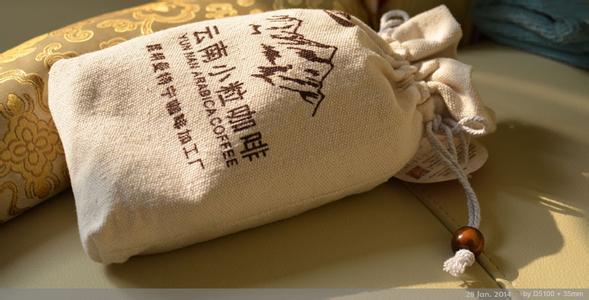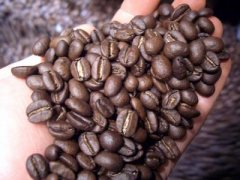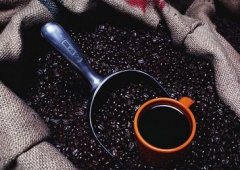A brief introduction to the Historical and Cultural Development of the Origin of Coffee in Yinshan Manor in St. Thomas, Jamaica

In 1944, the Jamaican government realized the necessity of regulating the blue mountain coffee industry and reformulated three regulatory suggestions for the blue mountain coffee industry: ① concentrated on the processing of blue mountain coffee beans, ② established the blue mountain coffee quality standard, and ③ established CIB, which was responsible for the organization and management of the market and the role of export supervisor.
In 1948, the world-famous Jamaican Coffee Bureau (CIB) was formally established, and the Jamaican government enacted the regulations on the Management of Jamaica's Blue Mountain Coffee Industry. The main responsibility of CIB is to improve the quality of Blue Mountain Coffee through management and supervision and regain its global reputation. At this time, the definition of Blue Mountain Coffee has been strictly stipulated in the law: ① gives four legal coffee farms, including wallenford, to process Blue Mountain coffee beans to ensure the quality of Blue Mountain Coffee. ② grows in the Blue Mountain area of 3000-5000 feet, and ③ Blue Mountain Coffee exports are graded: No.1,No.2,No.3, round beans.
Since 1960, the blue mountain area of Jamaica, which was hit by hurricanes, destroyed most of the manor facilities and coffee trees. Foreign capital, including Japan, provided help, and also obtained the shares and preferential import rights of most of the estates. At this time, in order to protect the reputation of the national treasure Blue Mountain coffee, the Jamaican government still retained the wallenford manor as the state, and made part of the supervision function of CIB Wallenford,Wallenford manor synonymous with CIB. Charged with the mission of managing and innovating the coffee industry, the manor manager is also appointed by the government.
Jamaica is one of the small coffee producing regions in the world, with an annual harvest of about 40000 bags-60 kg / sack (most of the Jamaican Blue Mountain coffee is actually shipped away in 70 kg barrels, they are the last countries to still use this traditional packaging method, but they produce 60 kg/ sacks, as that is the international standard for measuring coffee production). Compare Brazil, the world's largest exporter of coffee, with an annual production of 30000000 bags to 60 kg per sack.
Before 2008, the Japanese continued to invest heavily in the entire industry chain of Jamaican Blue Mountain Coffee and promised to underwrite 90% of its annual production. As a result, the rest of the world has only a 10% quota, resulting in a trend that demand has been falling short of supply, and prices have gone up.
The unique growth conditions give birth to the unique flavor of Blue Mountain Coffee and make it one of the "gourmet Coffee". 100% of the world's pure Blue Mountain Coffee refers to a specific range of Blue Mountain Coffee in eastern Jamaica, and every step in its planting and processing has been subject to stringent standards of quality management by the Jamaica Coffee Industry Authority. can be proved to be "pure Jamaican Blue Mountain Coffee".
The special conditions such as abundant rainfall, year-round fog and low temperature, average temperature of about 20 ℃ and fertile new volcanic soil constitute a good growing environment for Blue Mountain Coffee. Located at a high altitude of 2200 to 6000 feet, it creates a unique slightly sour taste, but it is not at all exciting or uncomfortable. It takes about 2 years for seedlings to be cultivated in the nursery. Organic fertilizers are used during their growth, and they are harvested one grain at a time during harvest. All processing, baking and packaging processes must meet the high standards set by the Jamaica Coffee Industry Authority.
Typica with low quantity and good quality is the best variety of Arabica. Most coffee-producing countries are only willing to grow other varieties with high yield but poor quality, but Jamaica gives priority to quality, preferring to sacrifice the production of Blue Mountain coffee in exchange for the best quality of Blue Mountain coffee.
100% pure Jamaican Blue Mountain Coffee, with its strong and attractive elegance, is indeed unmatched by other coffees. When it goes through the steps of grinding, brewing and tasting, it gives full play to its flavor, and it is difficult not to get drunk with the aroma of coffee around. Its caffeine content is very low, only about half of other varieties of coffee, in line with modern health requirements.
100% pure Jamaican Blue Mountain Coffee is a perfect and balanced blend of unique sour, bitter, sweet and mellow taste, coupled with a rich and unique aroma, no wonder coffee lovers all over the world are fascinated by it! High-altitude origin makes it with a little high-quality sour taste, a very small degree of bitterness is short and does not retain in the mouth, into the throat into a slightly sweet feeling, mellow throat rhyme is still more meaningful.
In 1728, coffee was first introduced to Jamaica. Due to the suitable soil, climate, light and other conditions in Jamaica, the quality of coffee was excellent, and the cultivation gradually expanded from St. Andrews to other areas.
In 1737, Jamaican coffee production reached 83000 pounds per year.
Over the next 40 years, a large number of private landowners appeared, and by 1800, there were 686 coffee farms in Jamaica
As a result of the serf trade, labor costs rose sharply, and the landowners were overwhelmed by the cost. By 1850, the number of coffee plantations had decreased to 186.
By 1900, the Jamaican government established the first coffee quality standard, but the standard was boycotted by many private landowners and was not implemented.
Since then, due to the lack of quality standards, the export quality of Blue Mountain coffee was uneven, which greatly affected its international reputation. in 1943, Canada, a big importer of Blue Mountain coffee, refused to import Blue Mountain coffee.
Important Notice :
前街咖啡 FrontStreet Coffee has moved to new addredd:
FrontStreet Coffee Address: 315,Donghua East Road,GuangZhou
Tel:020 38364473
- Prev

A brief introduction to the characteristics of coffee flavor and taste of Yinshan Manor in St. Thomas, Jamaica Coffee production area
The real Blue Mountain Coffee is one of the most advantageous coffee growing conditions in the world. Jamaica's weather, address structure and topography provide a unique ideal place. The ridge across Jamaica extends to the east of the island, and the Blue Mountains are more than 2100 meters high. Cool weather, foggy, frequent rainfall make this rich land Rain Water reconcile, where people use mixing
- Next

A brief introduction to the treatment methods of Grinding degree and roasting degree of Coffee in Yinshan Manor, Blue Mountain Coffee Mountain, Jamaica
By 1981, about 1500 hectares of land in Jamaica had been reclaimed for coffee cultivation, followed by the opening of another 6000 hectares of coffee land. In fact, today's Blue Mountain area is a small area with a planting area of only 6000 hectares, and it is impossible to grow all the coffee marked Blue Mountain there. Another 12000 hectares of land is used to grow the other two types of coffee:
Related
- Does Rose Summer choose Blue, Green or Red? Detailed explanation of Rose Summer Coffee plots and Classification in Panamanian Jade Manor
- What is the difference between the origin, producing area, processing plant, cooperative and manor of coffee beans?
- How fine does the espresso powder fit? how to grind the espresso?
- Sca coffee roasting degree color card coffee roasting degree 8 roasting color values what do you mean?
- The practice of lattes: how to make lattes at home
- Introduction to Indonesian Fine Coffee beans-- Java Coffee producing area of Indonesian Arabica Coffee
- How much will the flavor of light and medium roasted rose summer be expressed? What baking level is rose summer suitable for?
- Introduction to the characteristics of washing, sun-drying or wet-planing coffee commonly used in Mantenin, Indonesia
- Price characteristics of Arabica Coffee Bean Starbucks introduction to Manning Coffee Bean Taste producing area Variety Manor
- What is the authentic Yega flavor? What are the flavor characteristics of the really excellent Yejasuffi coffee beans?

